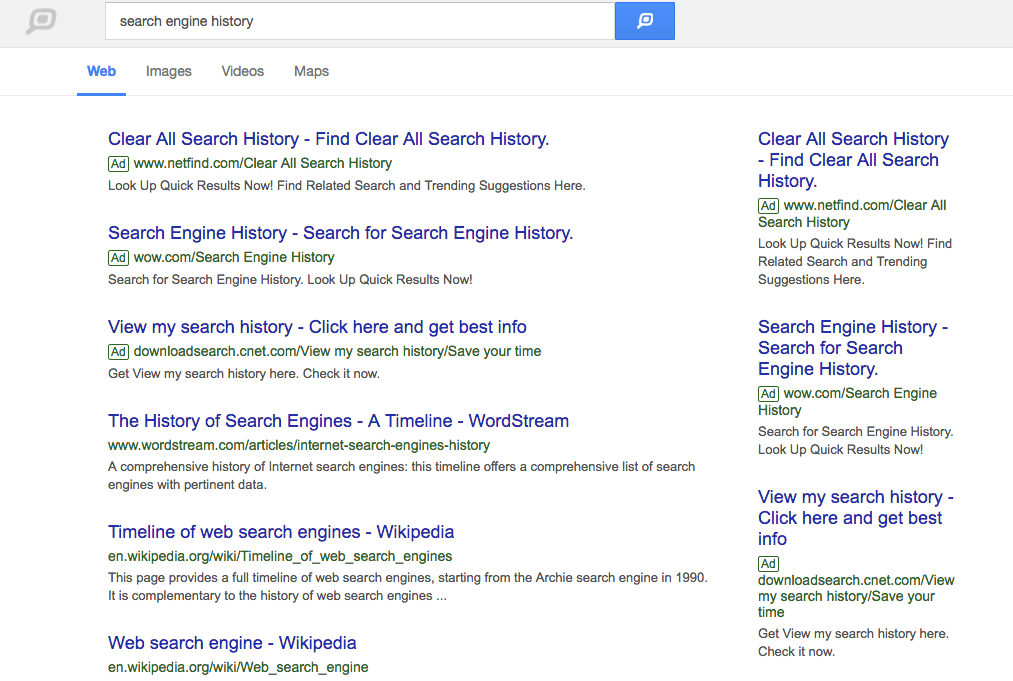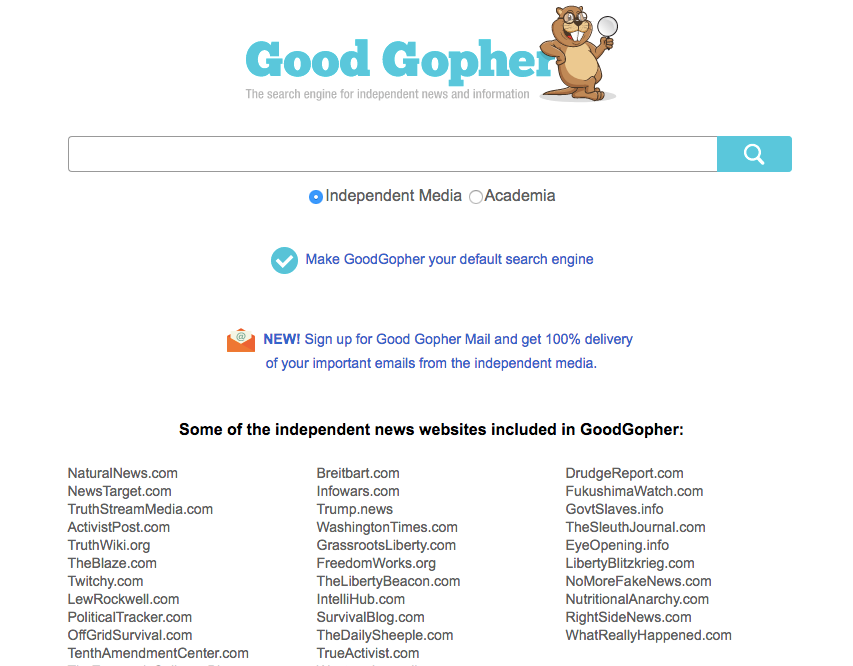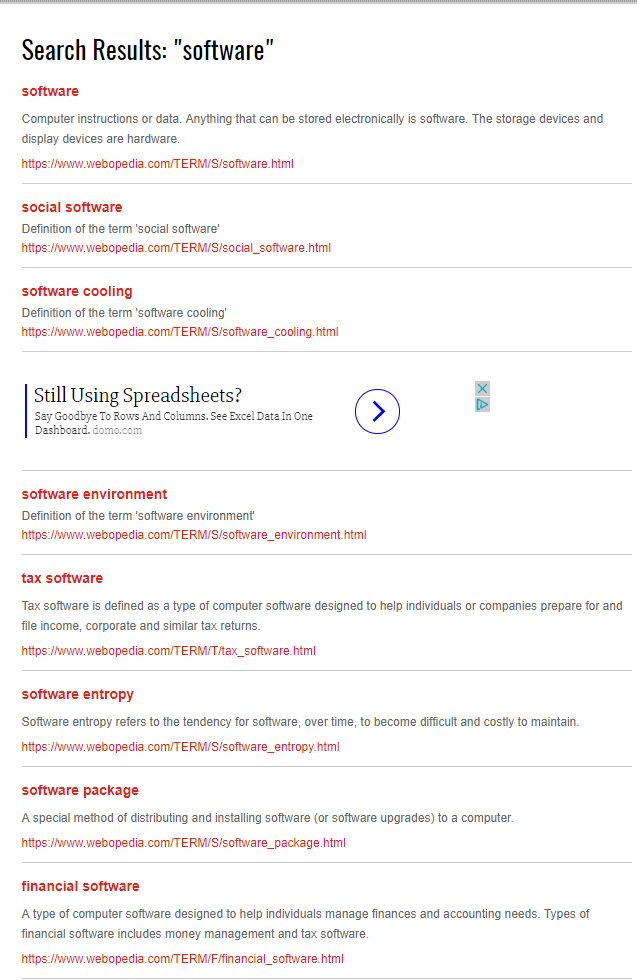Plain and simple, Google isn’t the be-all and end-all of search engines, but it’s often easy to feel like it – perhaps nowhere more so than within the search industry itself.
And when you think of other noteworthy search engines besides Google, how many can you name? Bing? Yahoo? Maybe DuckDuckGo, if you’re privacy-conscious (or a bit of a tech hipster)?
Believe it or not, there are a number of other search engines out there, still crawling the web and making their mark. Since Google has so completely dominated the “all-purpose” search engine space, many of them have moved to occupy more niche areas, like academia, or sought to distinguish themselves in other ways.
As technology continues to have a hand in most everything that we do, it’s important to be aware of the other contenders in the industry. While they aren’t likely to revolutionize SEO overnight, they’re indicative of the trends and technology currently making their way through search, which could show up on a much larger scale later on.
If you’re feeling fed up with more “mainstream” search engines, you might even want to give some of them a go yourself.
Below is a break-down of six new search engines you should be keeping your eye on and why:
Oscobo
Oscobo is a privacy-focused search engine that made its debut in late 2015. You will see in the screenshot below that its landing page is almost identical to Google, showing results similar to what you would see on Google, but there is one major difference: it’s anonymous.

The other difference is that this particular engine targets those in the UK. Regardless, the engine is open to everyone and licenses its search index from Bing/Yahoo, so you’re getting the same great results without the snooping online.
It doesn’t log your IP address or drop any cookies, and generates revenue solely from PPC advertising, where the advertiser is paying for the intent behind someone typing a keyword.
Good Gopher
Good Gopher is a search engine for independent media and academia, created in 2015. This search engine boasts being “the world’s first privacy-protecting search engine that bans corporate propaganda and government disinformation.”

It has been dubbed “the Internet for human knowledge”, supposedly allowing more independent and honest sites to rise to the top of search results – though as the screenshot above will demonstrate, many of these are still highly politically partisan. However, its roster also includes independent activists, journalists, scientists, bloggers, media websites, nonprofits for human interests, and more.
Users can “like” certain sites they enjoy to help them move up in the SERPs, flag any sites that may have slipped through, and the engine will not track your searches or search behavior (a trend seems to be brewing here…).
Semantic Scholar
Semantic Scholar is an academic research search engine, launched in November 2015. Adam Stetzer previously wrote about Semantic Scholar for Search Engine Watch, noting its use of artificial intelligence, data mining and natural language processing.

This engine has been designed to be a search service for journal articles, using a combination of machine learning and semantic analysis to offer relevant results. In this way, the engine is called a “smart” engine. It will highlight which papers are most important using data mining (hence the AI and machine learning aspect of the engine) as well as make connections for you about other related papers (hence the “semantic” portion of the engine).
While this is currently used primarily for those in the field of scientific research, the implications of how this engine, or type of engine, could grow are huge.
Yippy
There’s only one word to describe this search engine: obscure. If you’re looking for hard-to-find websites, use Yippy. Essentially, Yippy searches other search engines for you. It does the hard digging so you don’t have to.
If you’re looking for very explicit hobby sites, government information, or specific research for an academic paper, you’ll find it on Yippy. Once you’ve done your search, you’re given the option to “preview” the website before you go directly there. It’s a helpful feature for browsing.
One of the coolest things about this search site is the ability to even further refine your searches. For example, I searched “search engine watch.” When I performed my search, I was given the option to choose exactly what I was looking for. I even got sidetracked looking at all the other things related to that search query (shown on the left-hand side).
You’d be surprised all that you’d find with this engine. Below shows a screenshot of the engine in use:

Once again, notice that along the left side of the page you’re given recommendations for how to enhance your search! With this specificity, you can really dig deep and find exactly what you’re looking for – literally, exactly.
Omnity
Omnity is a research and semantic mapping search engine, launched circa 2016. The search engine aims to help you find related documents and therefore discover how different pieces are interconnected, specifically in the fields of science, medicine, engineering, law, and finance.
Although this search engine would be a dream for researchers, it can also help marketers who may have a client in one of these fields and are looking to create unique content. Note that in order to use the engine, you need to sign up to use the site on either the free or the paid enterprise plan.

Webopedia
Not sure what a specific technical term means? You could check out Google’s results, or you could go to Webopedia. If you’re not already familiar with technical terms, then you’ll want to use this search engine. Webopedia is set up exactly how you’d expect—in encyclopedia format.
For example, I searched the word “software.” Here’s what showed up in the results:

Unlike other sources, Webopedia breaks a term down so it makes sense to the average person who may not be technically literate.
The takeaway
In a world run by Google, we often forget there are other search engine options available. When you’re searching the vast black hole that is the Internet, you want accurate results, uncluttered data, and ways to reduce your search for specificity.
While Google is king of search and universally used, there is still plenty of room for search to evolve and become smarter and more specialized, so it’s worth keeping an eye out for the little guys who are finding ways to do it.
Amanda DiSilvestro is a writer for AgencyAnalytics, an all-in-one reporting platform for agencies. You can connect with Amanda on Twitter and LinkedIn, or check out her content services at amandadisilvestro.com.





